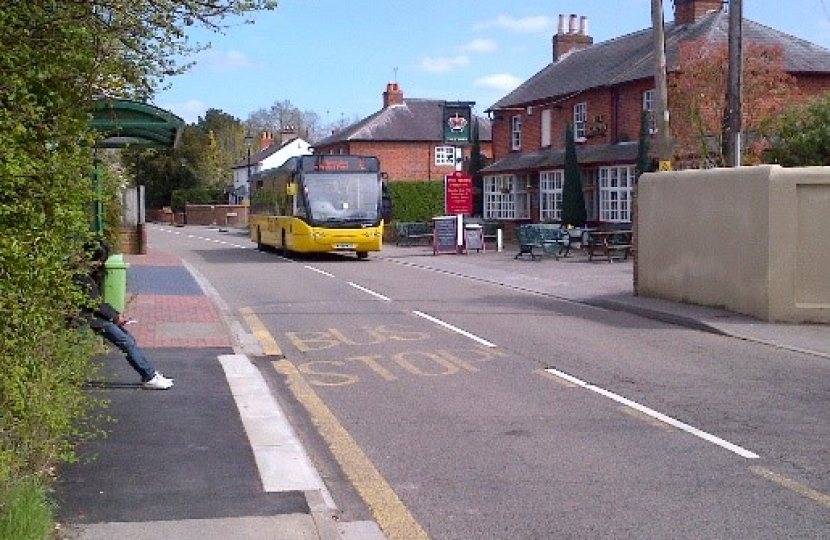
Opposition councillors in Wokingham Borough are calling on the Council’s administration to implement a Conservative plan to save local bus services.
Expressing concern at declining passenger numbers following the COVID-19 pandemic, the Conservatives have outlined actions for the Council to improve usage and secure more funding.
The action plan is designed to build on bridging funding for park & ride services provided by the previous Conservative administration, as well as negotiations with parish councils for part-funding.
Cllr Charles Margetts, Shadow Executive Member for Highways and Transport, set out three key areas for the Council’s Liberal Democrat-led coalition administration to address.
The three steps cover developer contributions held by parish councils, lobbying local MPs, and a PR plan to boost passenger numbers.
Pointing to the large sums currently held as money from developers to compensate for new houses, Cllr Margetts argued that parish councils should be encouraged to release this money to support bus services.
He emphasised that the Borough Council’s previous Conservative administration had begun negotiations with two parish councils to part-fund the No. 7 service, something he urged the coalition administration to continue.
The second step would be for the administration to proactively work with all four local MPs to secure more Government funding.
Cllr Margetts highlighted the work the Conservatives had already begun with the Borough’s Members of Parliament, including John Redwood MP, to emphasise the need for additional money.
Finally, the Conservatives are arguing that the Council needs to put together a communications campaign encouraging local residents to use buses to keep services going.
Cllr Margetts hit out at the Council’s current administration, arguing that “they have been practically silent on the matter – only speaking up to blame others”.
Bus services in Wokingham Borough, and around the country, have been struggling as the number of passengers has failed to sufficiently recover after the pandemic.
Without intervention, services are likely to be withdrawn, forcing people into cars while having a detrimental impact on those who depend on buses to get around.
Cllr Margetts said: “The decline in passenger numbers is a national problem which is impacting all areas of the UK.
“In Wokingham Borough, there is a clear window of opportunity for action, and the Lib Dem-led administration should be doing something now.
“Instead, the Council Leader is blaming the Government while ignoring the fact that the previous Conservative administration put forward more money in an attempt to keep services going.
“The Lib Dem, Labour and Independent councillors in the administration need to wake up on this issue, rather than blaming others and doing nothing.
“There is really no point talking about getting people out of cars if the Council’s leadership is going to let public transport die.
“The Conservatives are urging the Lib Dem coalition to act now and save local bus routes.”
Further information
- There are currently two types of bus service in Wokingham Borough. They are commercial services (where the service is commercially viable and is run for profit) or supported services (where WBC pays a subsidy to the operator).
- During the pandemic, commercial operators were given grants by Central Government to keep services running until bus usage had returned to pre-pandemic levels. This set of grants will expire in October 2022.
- The Council’s previous Conservative administration provided bridging funding, in particular for the Thames Valley Park & Ride service. However, with Government funding coming to an end, the administration also decided to phase out this bridging funding until a new source of funding could be secured. At the same time, Reading Buses decided to withdraw its support for the service. The Conservative Group has argued that the current Liberal Democrat-led administration could choose to reinstate the funding if they wished.
- Bus use in Wokingham Borough has only returned to 77% of previous use. Bus use amongst concessionary users has only reached 55% of pre-pandemic levels.
- The other factor which is crippling this sector is the inflationary pressure felt across the economy. To operate a bus seven days a week, the driver and vehicle cost around £240,000 per annum. These costs look likely to be 10%–15% higher this year.
- Therefore, income is down for bus companies and costs are up. The consequence of this is that it is very likely that commercial bus operators will start approaching WBC in the near future for subsidy and there is a significant risk of services being withdrawn if WBC decides not to subsidise the route.

